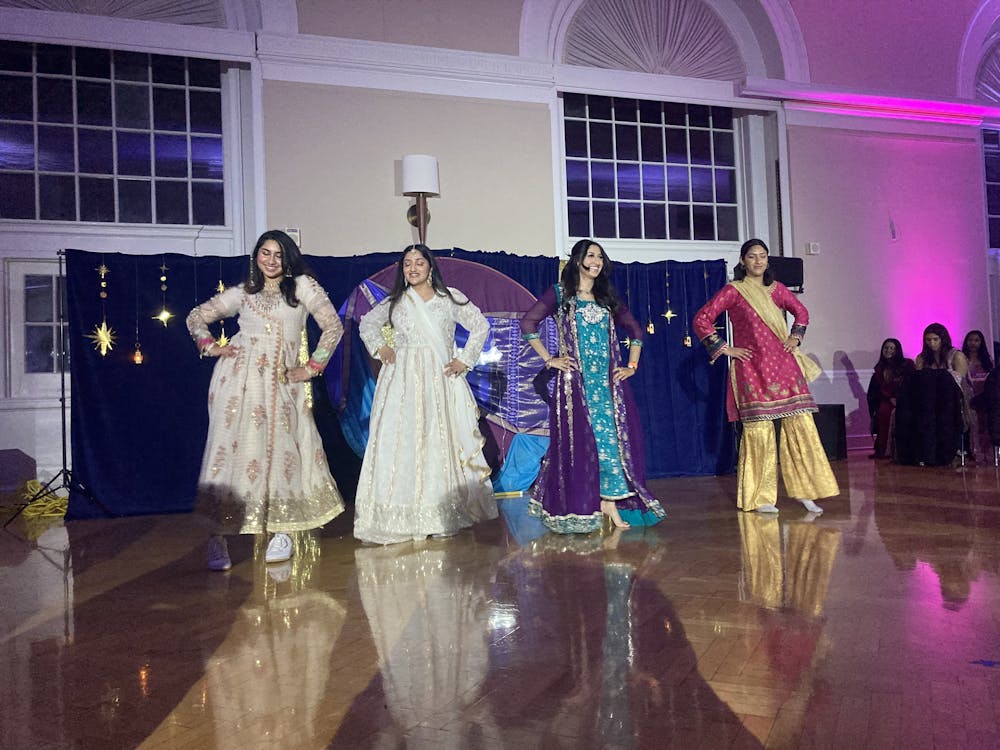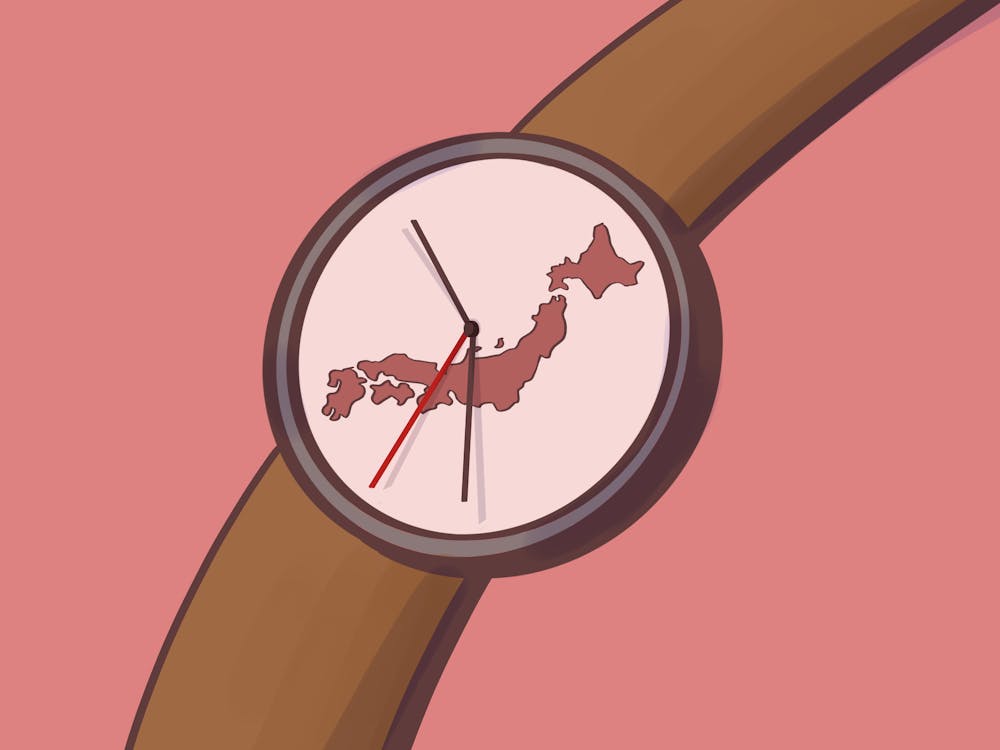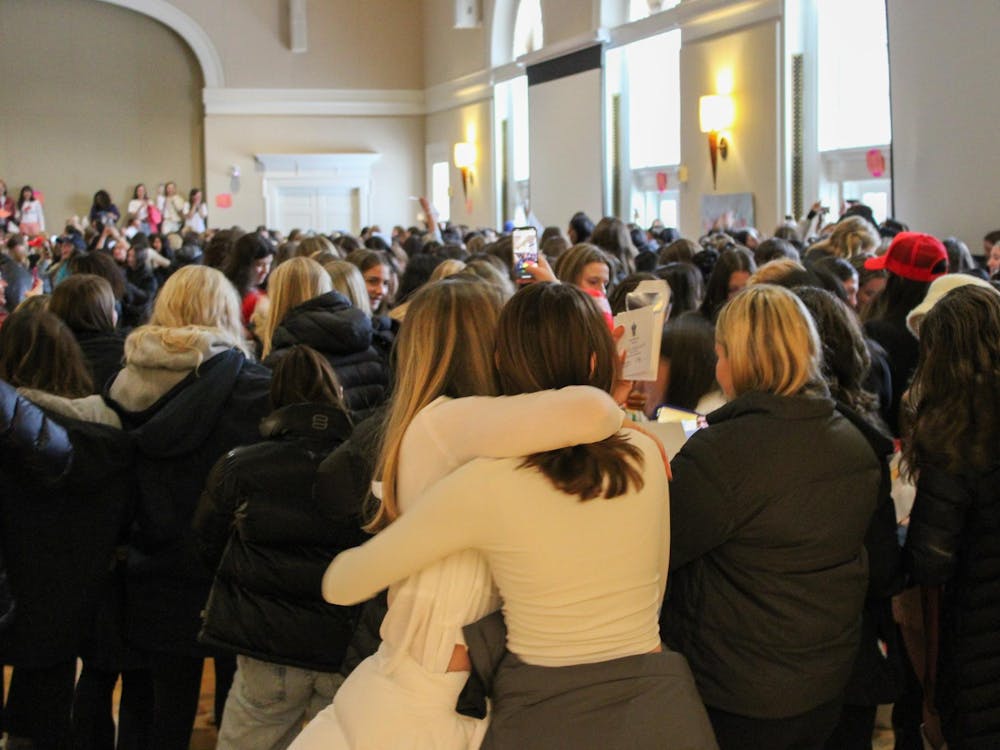In the University’s ever-bustling community of student-self governance, the latest flurry of activity concerns student leadership within the classroom. Because of efforts by the Student Council’s Academic Affairs Committee, students have the opportunity to submit proposals for courses to be added to the Course Offering Directory.
In the words of Marisa Roman, fourth-year College student and Academic Affairs co-chair, “The student-initiated course [is] a greater representation of student governance ... [granting students] the authority to dictate what they want to learn ... and expand their horizons to the greatest extent possible.”
But why the need for student-created courses?
“We felt as though there were a lot of courses out there that weren’t ... serving [students’] learning needs or desires,” Roman said.
Matt Fifer, fourth-year Engineering student and Academic Affairs co-chair, said student-initiated courses provide students with the means and funding “to take their ideas and turn them into tangible solutions.”
Though the program just recently has come into the spotlight, it is not new; before this semester it existed for several years but with so little publicity and support that Roman called it “just a little tidbit in the [College of] Arts & Sciences.”
At least one early student-founded course proved successful, though. Many people have heard of the University’s popular LASE 360, “The Best of U.Va.: A Collection of Unforgettable Lectures” but do not realize that it was started by a student. According to “E-News Online,” a University Engineering news source, Emily Ewell, a 2007 chemical engineering graduate, came up with the idea for Unforgettable Lectures when considering how many students missed out on great lectures that were unrelated to their majors.
With the support of Biology associate professor Barry Condron, Ewell’s proposal for the course was accepted and quickly filled by students. The course still runs today under Condron’s supervision and is widely sought after by University students.
In general, however, the early student-initiated course program proved difficult to navigate, mainly because it did not offer any funding for the classes. This left course proposers on their own to find a faculty sponsor. “You can’t really expect faculty members to completely volunteer their time [for] one- to three-credit classes,” Fifer said.
When Fifer joined the Academic Affairs Committee in 2006, the co-chairs, then-second-year College students A.J. Frey and Kathryn Serra, began discussing ideas for revamping the program to make it more usable for students. Similar programs were already solidly in place at other schools like Stanford and Berkeley, and Frey and Serra “tossed the idea around a little bit” and consulted Assoc. Dean for Undergraduate Studies Gordon Stewart about it, Fifer said.
The program began to gain momentum when Fifer and Roman became co-chairs last year. They started talking with the vice provost about possibilities and posted a preliminary application to the Student Council Web site, Fifer said.
Finally, Roman and Fifer succeeded in acquiring enough funding for the program: They received roughly $1,000 from Student Council and garnered about $5,000 total for the program. Help from the Student Council would not be possible without the aid of the University Bookstore, Fifer said.
“The bookstore is basically paying for this initiative,” he said.
Student-initiated courses are costly endeavors, and the creation process demands committed students. The application process works in a “two-fold manner,” Roman said. Students must complete the form posted online and must also submit a statement of what makes their topic relevant and a detailed syllabus. Then they must obtain the signature and approval of a faculty member “who can assume the necessary role... as if he or she were teaching the course.”
The signature does not mean that the faculty member will be the primary teacher, however. In some cases his or her only function is to fulfill administrative tasks, monitor attendance and provide outside support if needed — an example is the role of Condron in the Unforgettable Lecture series.
The first official recipient of the co-chairs’ approval, selected for the current fall semester, was a course titled “Global Development in Practice,” INST 150. Led by fourth-year Biomedical Engineering student Shokoufeh Dianat and third-year College student Meredyth Gilmore, the course aims to help first- and second-year students explore different issues in global development and “what students at U.Va. have done before that they can learn from,” Dianat said.
Dianat and other students had worked on development projects abroad, she said, but had not seen support for similar efforts at the University.
“We wanted to create some student-to-student venue ... for underclassmen to learn how they can get involved ... and whether they should get involved,” she said.
The two-credit course meets every Wednesday evening and is led by one of the 10 course moderators, all of whom are students with extensive experience in global development studies. Environmental Sciences Professor Robert J. Swap, the professor supporting and supervising the course, said he accepted the students’ request for his guidance because he knew and respected Dianat and Gilmore.
“The bottom line is that they’ve done good work,” he said, noting he wanted to “honor their efforts.”
When asked about the value of student-instructed courses on topics of field research, Swap said “students speaking to students comes across as authentic.”
“It’s a fellow learner’s voice ... having gone through [the experience] before ... [and] I think that students can better relate to what other students are capable of doing,” he said. “There’s a sense of empowerment [that] goes both ways.”
After every class, Dianat said, instructors pass out evaluation sheets for students to assess the effectiveness of that week’s selected lecture, reading and class discussion.
“The really cool thing is that a lot of the students want to continue this course and become instructors for next year,” she added.
With the encouragement of the first course’s success, Roman and Fifer have already finished the initial application phase for spring 2009 courses, Fifer said. Roman added that the committee hopes to expand the program to offer three student-led courses. One has already been selected, a course on Turkish culture proposed by third-year College student Sena Aydin.
Though the problem of funding the courses has been temporarily resolved, Fifer said, “I don’t think the [current] status of the funding ... is something we’d want to continue forever.”
Fifer said he hopes to expand the program’s current partnerships with organizations like the Arts & Sciences Council, which has contributed roughly $7,000 for the program’s book fees.
Arts & Sciences Council President Lindsey Turner said the Council is “very supportive. We like the idea and hope the program continues.”





